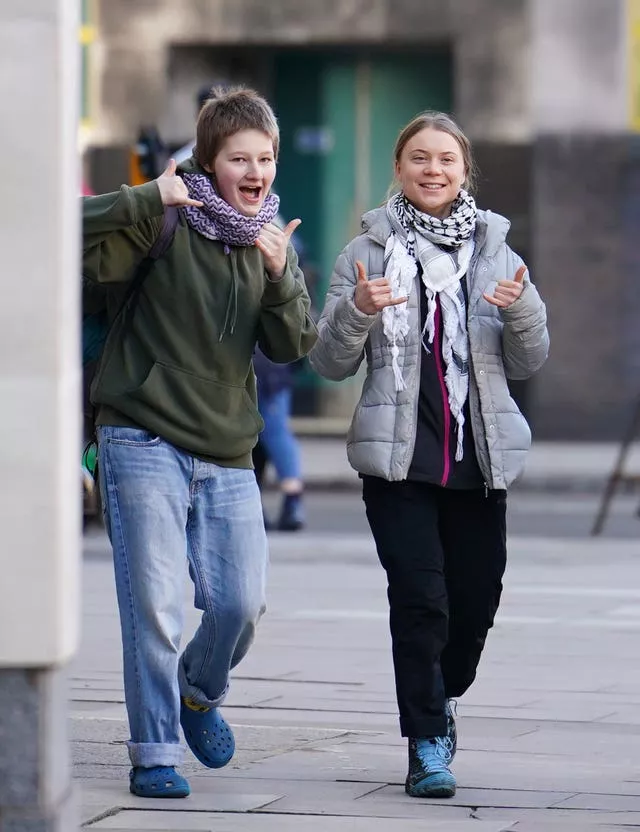Climate campaigner Greta Thunberg was given a “final warning” by police to move to a designated protest area during a demonstration in central London last year before she was arrested for staying put, a court has heard.
The 21-year-old, from Sweden, was arrested during the demonstration near the InterContinental Hotel in Mayfair on October 17 as oil executives met inside for the Energy Intelligence Forum.
Thunberg, two Fossil Free London (FFL) protesters and two Greenpeace activists appeared at Westminster Magistrates’ Court on Thursday for trial after each pleading not guilty in November to breaching Section 14 of the Public Order Act 1986.

The court heard that protesters started to gather near the hotel at around 7.30am and police engaged with them about improving access for members of the public, which had been made “impossible”.
Prosecutor Luke Staton said a couple of protesters gained access to the roof just before 10.30am and “were slowly abseiling down the side of the building”.
The section 14 condition was imposed at around 12.30pm, which dictated that the protest could continue but on the pavement to the south of the hotel, the court heard.
It was said police found the move “necessary” to prevent disruption, as the “majority” of people inside the hotel could not leave and people could not get inside.
From 1pm, the court heard individual officers engaged with individual protesters and informed them of the section 14 condition.
Thunberg was stood outside the hotel entrance and was approached by police, informed of the condition and of the designated protest area, the court heard.

Mr Staton told the court that she was warned by one officer her failure to comply would result in her arrest.
While that officer was elsewhere engaged, another officer then spoke with Thunberg and “gave her a final warning”, the prosecutor said.
“She said that she was staying where she was and so she was arrested,” Mr Staton said.
The other defendants were similarly informed of the section 14 condition and did not move to the designated protest area, the court heard.

Mr Staton said: “The Crown’s case is that all five of these defendants took part in a public assembly.
“They knew or ought to have known that a section 14 condition had been imposed and they all failed to comply with that condition.”
Thunberg continually made notes in a small notebook as proceedings went on.
She arrived at the court just after 9am and made her way past media and environmental protesters who were demonstrating “in solidarity” with the defendants, holding up large yellow banners that read “Climate protest is not a crime” and cardboard signs saying “Who are the real criminals?”.
Wearing a grey jacket, Thunberg smiled at photographers before making her way inside.
The trial, expected to last two days, continues.







